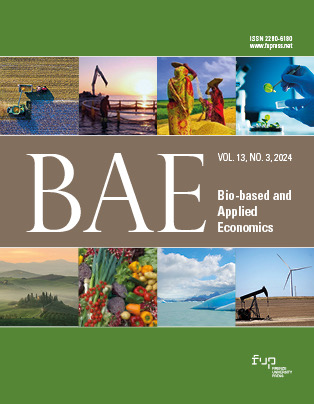Intention and behavior toward eating whole grain pasta on a college dining campus: Theory of Planned Behavior and message framing
Published 2024-04-16
Keywords
- dietary fiber,
- message framing,
- Gain-Framed,
- Loss-Framed,
- Message Engagement
How to Cite
Copyright (c) 2023 Giovanni Sogari, Rungsaran Wongprawmas, Giulia Andreani, Michele Lefebvre, Nicoletta Pellegrini, Miguel I. Gómez, Cristina Mora, Davide Menozzi

This work is licensed under a Creative Commons Attribution 4.0 International License.
Funding data
-
Horizon 2020 Framework Programme
Grant numbers 749514
Abstract
The consumption of whole grains has several health benefits, however, most US consumers – including young adults – do not meet the recommended consumption intake. To understand the underlying factors affecting the intention and consumption of whole grain pasta, a survey based on the Theory of Planned Behavior (TPB) was developed and administered to US college students. For four weeks, participants (n = 325) either did not receive any information (control) or received weekly messages on the health benefits of whole grain pasta (e.g., high fiber and niacin contents) in the forms of gain- (treatment 1) or loss-framed (treatment 2) information. Variables of the TPB model and consumers’ perceptions were investigated both at Time 1, when the first message was received (week 0), and at Time 2, one month after the intervention (week 4). Results from the two moments were compared. We found that the TPB measures and perceived usefulness were not influenced by the treatment group; however, the gain-framed message engendered greater message engagement than the loss-framed one. Finally, results from the structural equation model showed that attitude, subjective norms, and perceived behavioral control were positively associated with the intention to consume whole grain pasta, and the intention was a strong determinant of participants’ behavior. Based on our results, implications and suggestions for future studies are discussed.






